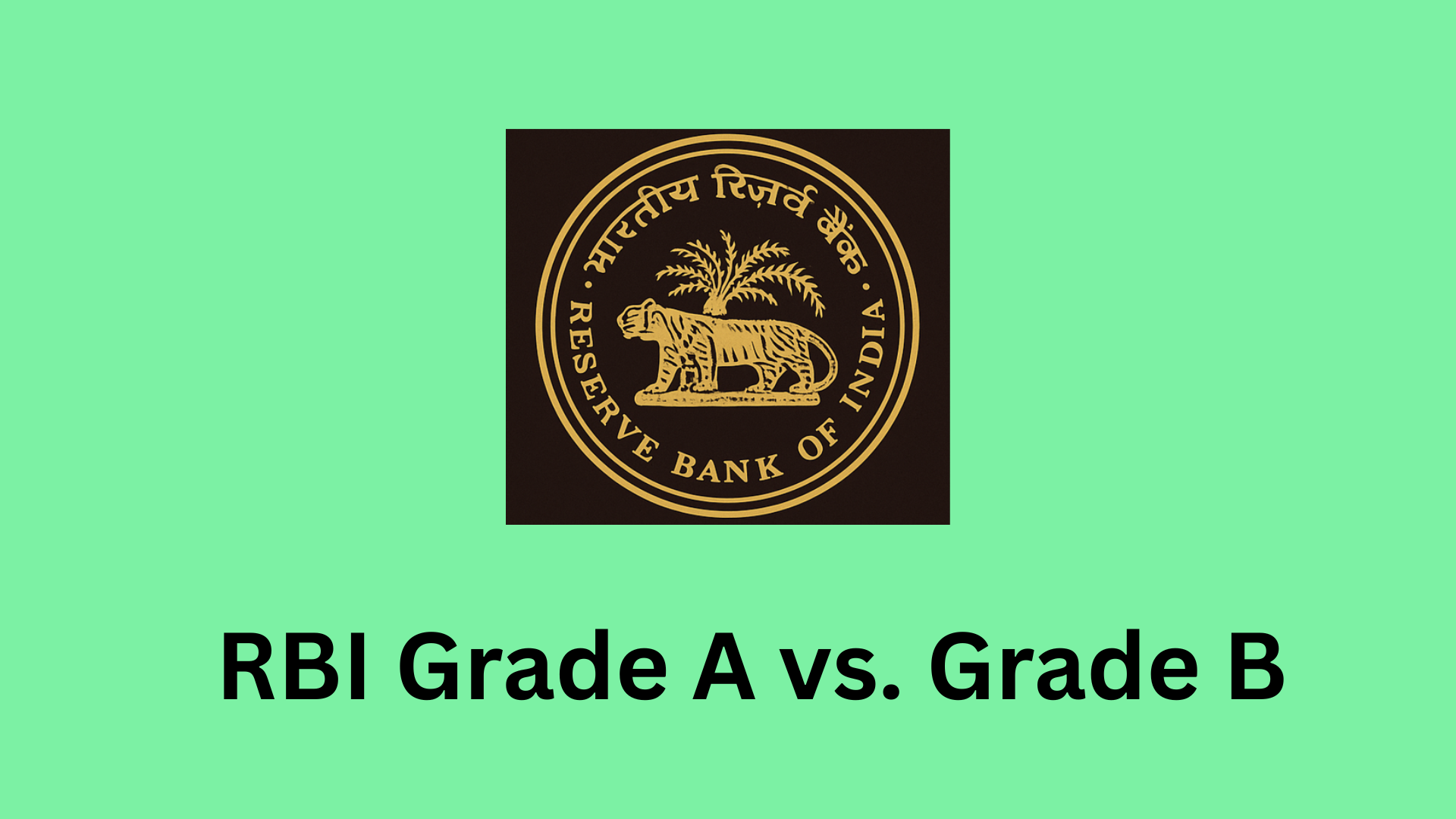Are you confused between RBI Grade A and RBI Grade B exams? Wondering which one offers better pay, growth, and job responsibilities? You’re not alone.
Both are prestigious roles in the Reserve Bank of India (RBI), offering excellent career opportunities, job security, and a chance to work at the nation’s apex financial institution. However, there are major differences between the two — in terms of role, salary, eligibility, selection process, and career path.
In this blog, we break down the 7 most important differences between RBI Grade A and Grade B to help you decide which one suits your career goals better.
What Do These Posts Mean?
Before diving into the comparison, let’s understand the roles:
RBI Grade A (Assistant Manager)
- This is an entry-level managerial post.
- Primarily involves administrative and supportive tasks.
- Ideal for candidates looking for a stable start in the RBI system.
- Acts as a stepping stone to bigger roles within the bank.
RBI Grade B (Manager)
- A mid-level managerial post with higher authority and responsibilities.
- Involves formulating policies, regulating banks, and liaising with other financial bodies.
- Offers faster promotions and a higher salary.
RBI Grade A vs Grade B – 7 Major Differences
Here’s a detailed comparison table based on the most recent notifications and expected criteria for 2025:
| Basis | RBI Grade A | RBI Grade B |
|---|---|---|
| Post | Assistant Manager | Manager |
| Last Recruitment | 2022 | 2024 |
| Eligibility | Master’s in relevant field (e.g., Rajbhasha) | Bachelor’s for General; Master’s for DEPR/DSIM |
| Selection Process | Paper 1 (Objective), Paper 2 (Descriptive), Interview | Phase 1, Phase 2 (Objective + Descriptive), Interview |
| Mode of Exam | Online + Offline | Fully Online |
| Starting Basic Pay | ₹44,500 | ₹55,200 |
| Career Growth | Assistant Manager → Manager → AGM → DGM → GM → CGM → PCGM → ED → Dy. Governor | Manager → AGM → DGM → GM → CGM → PCGM → ED → Dy. Governor |
Should You Prepare for RBI Grade B Only?
Absolutely. Preparing for RBI Grade B automatically prepares you for Grade A. Here’s why:
1. Overlapping Syllabus
Both exams test English, Quant, Reasoning, and General Awareness. RBI Grade B just adds more depth with subjects like Economics, Finance, and ESI.
2. Tougher Prep = Easier Backup
If you’re well-prepared for the Grade B level, you can easily crack Grade A.
3. One Study Plan, Two Targets
No need to make separate plans. Preparing smartly for Grade B makes you eligible for both.
4. Better Career & Pay
Even if you aim for Grade A, preparing for Grade B gives you a shot at a higher position with more benefits.
If you’re serious about a career in RBI, start with Grade B preparation. It’s your gateway to not just Grade B but also Grade A. One focused preparation strategy = double the opportunity.
Benefits of Focusing on RBI Grade B:
- Covers both exams’ syllabus
- Builds stronger concepts in Finance and Economics
- Makes interview prep easier
- Saves time and effort
- Keeps you eligible for both roles
Start your prep smart. Choose RBI Grade B.
Related Reads:
- RBI Grade B Notification 2025
- RBI Grade B Syllabus 2025
- RBI Grade B Vacancies 2025
- RBI Grade B Cut Off
- RBI Grade B Salary and Perks
FAQs: RBI Grade A vs Grade B
Q. Which is better – RBI Grade A or Grade B?
RBI Grade B offers better salary, authority, and faster promotions.
Q. Can I prepare for both exams together?
Yes, RBI Grade B prep overlaps with Grade A completely.
Q. Are the recruitments separate?
Yes, RBI conducts individual recruitment drives for Grade A and B.
Q. Is Grade B tougher than Grade A?
Yes, due to the broader syllabus and higher level of competition.
Q. Is the salary difference significant?
Yes, RBI Grade B officers start with a higher basic pay and overall CTC.
